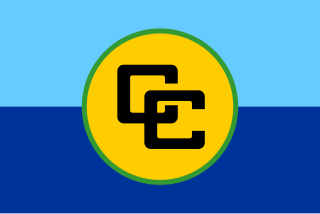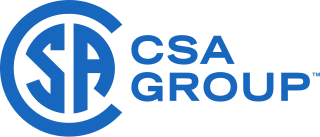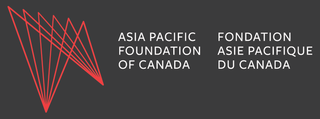Related Research Articles

The Caribbean Community is an intergovernmental organisation that is a political and economic union of 15 member states and five associated members throughout the Americas, The Caribbean and Atlantic Ocean. It has the primary objective to promote economic integration and cooperation among its members, ensure that the benefits of integration are equitably shared, and coordinate foreign policy. The organisation was established in 1973, by its four founding members signing the Treaty of Chaguaramas. Its primary activities involve:

The Organisation internationale de la Francophonie is an international organization representing countries and regions where French is a lingua franca or customary language, where a significant proportion of the population are francophones, or where there is a notable affiliation with French culture. It is also called the French Commonwealth.

A learned society is an organization that exists to promote an academic discipline, profession, or a group of related disciplines such as the arts and sciences. Membership may be open to all, may require possession of some qualification, or may be an honour conferred by election.
Issues relating to the State of Israel and aspects of the Arab–Israeli conflict, and more recently the Iran–Israel conflict, occupy repeated annual debate times, resolutions and resources at the United Nations. Since its founding in 1948, the United Nations Security Council, has adopted 79 resolutions directly related to the Arab–Israeli conflict as of January 2010.

The sport of cricket has a known history beginning in the late 16th century England. It became an established sport in the country in the 18th century and developed globally in the 19th and 20th centuries. International matches have been played since the 19th-century and formal Test cricket matches are considered to date from 1877. Cricket is the world's second most popular spectator sport, after association football (soccer).

The CSA Group is a standards organization which develops standards in 57 areas. CSA publishes standards in print and electronic form, and provides training and advisory services. CSA is composed of representatives from industry, government, and consumer groups.
The Canadian International Development Agency was a federal Canadian organization that administered foreign aid programs in developing countries. The agency was merged into the Department of Foreign Affairs in 2013 by the federal government under Prime Minister Stephen Harper.

The International Association of Public Transport is a non-profit member-led organisation for public transport authorities, networks and operators, policy decision-makers, scientific institutes and the public transport supply and service industry, that works to advance sustainable urban mobility.
The Commonwealth of Learning (COL) is an intergovernmental organisation of The Commonwealth headquartered in Burnaby, British Columbia, Canada. Working collaboratively with governmental and non-governmental organizations and other institutions in the Commonwealth, as well as with international development agencies, COL has the mandate to promote the use of open learning and distance education knowledge, resources and technologies. The Board of Governors is Chaired by His Excellency Danny Faure, former President of the Republic of Seychelles
The International Association of Prosecutors (IAP) is a global non-governmental organisation of prosecutors, established by the United Nations in 1995, Vienna. It has 183 organizational members from 177 countries, and individual members.

The International Trade Union Confederation (ITUC) is the world's largest trade union federation.

Scandinavian studies or Scandinavistics is an interdisciplinary academic field of area studies, mainly in the United States and Germany, that primarily focuses on the Scandinavian languages and cultural studies pertaining to Scandinavia and Scandinavian language and culture in the other Nordic countries. While Scandinavia is defined as Denmark, Norway and Sweden, the term Scandinavian in an ethnic, cultural and linguistic sense is often used synonymously with North Germanic and also refers to the peoples and languages of the Faroe Islands and Iceland; furthermore a minority in Finland are ethnically Scandinavian and speak Swedish natively.
The Parliamentary Conference of the Americas, or COPA, was created in 1997 under the auspices of the United States' Council of State Governments and National Conference of State Legislatures, the Quebec National Assembly and a Brazilian legislative organization. The first Conference was held in Quebec City, Province of Quebec, in Canada, at which Jean Pierre Charboneau, the President of the Quebec National Assembly, was elected COPA's first President. The second Conference was held in Río Grande, Puerto Rico in the United States under the presidency of Puerto Rico Senator Kenneth McClintock, COPA's second President.

The World Wind Energy Association (WWEA) is an international non-profit association representing the wind power sector worldwide, with members in 100 countries, amongst them the leading national and regional wind energy associations. The organisation works for the promotion and worldwide deployment of wind energy technology and advocates a future energy system based on renewable energy.
The Governor General's International Award for Canadian Studies is an award established in 1995 by the International Council for Canadian Studies. The support for this award by the Office of the Governor General of Canada was at the initiative of late Governor General Ramon Hnatyshyn The award honours a living scholar who has made an outstanding contribution to scholarship and to the development of Canadian Studies internationally, and involves international jury selection. In alternate years, the award is referenced to a scholar of Canadian Studies whose scholarship has been developed in Canada, and a scholar of Canadian studies whose scholarship has been developed outside of Canada. Recent honourees have included Maria Teresa Gutierrez-Haces (2007), Christl Verduyn (2006) and Serge Jaumain (2005).

The Asia Pacific Foundation of Canada, created by an Act of Parliament in 1984, is an independent, not-for-profit think-tank on Canada's relations with Asia.
The International Cocoa Organization (ICCO) is a global organization, composed of both cocoa producing and cocoa consuming countries with a membership. Located in London, ICCO was established in 1973 to put into effect the first International Cocoa Agreement which was negotiated in Geneva at a United Nations International Cocoa Conference. There have since been seven Agreements. The Seventh International Cocoa Agreement was negotiated in Geneva in 2010 and came into force provisionally on 1 October 2012.
The European Group of National Human Rights Institutions was one of four regional networks of national human rights institutions within the International Co-ordinating Committee of NHRIs. It has ceased to exist and was superseded by the European Network of National Human Rights Institutions (ENNHRI) in 2013.
Canadian Voice of Women for Peace, also known as the Voice of Women or VOW, is a Canadian anti-nuclear pacifist organization that was formed in 1960. The organization was created in response to an article in which Lotta Dempsey, a journalist for the Toronto Star, called out for action against the threat of nuclear war and asked women to work together for peace. After the article was published, a group of women contacted Dempsey and formed a women's organization called the Canadian Voice of Women for Peace. The organization's work has spanned multiple decades and is Canada's oldest feminist peace group.
The International Economic Association (IEA) is an NGO established in 1950, at the instigation of the Social Sciences Department of UNESCO. To date, the IEA still shares information and maintains consultative relations with UNESCO. In 1973 the IEA became a federated member of the International Social Science Council.
References
- ↑ International Council for Canadian Studies, "Welcome". www.iccs-ciec.ca
- ↑ Careless, J.M.S. (December 16, 2013). "Learned Societies". The Canadian Encyclopedia (online ed.). Historica Canada.
- ↑ International Council for Canadian Studies, "About Us". www.iccs-ciec.ca
- ↑ International Council for Canadian Studies, "Mandate". Archived 2008-09-17 at the Wayback Machine www.iccs-ciec.ca
- ↑ "Canada Parley Opens". Jerusalem Post. Jerusalem. May 17, 1992. p. 10. Archived from the original on October 24, 2012. Retrieved 6 January 2010.
- Staff writer (2024). "International Council for Canadian Studies (ICCS)". UIA Global Civil Society Database. uia.org. Brussels, Belgium: Union of International Associations. Yearbook of International Organizations Online. Retrieved 24 December 2024.